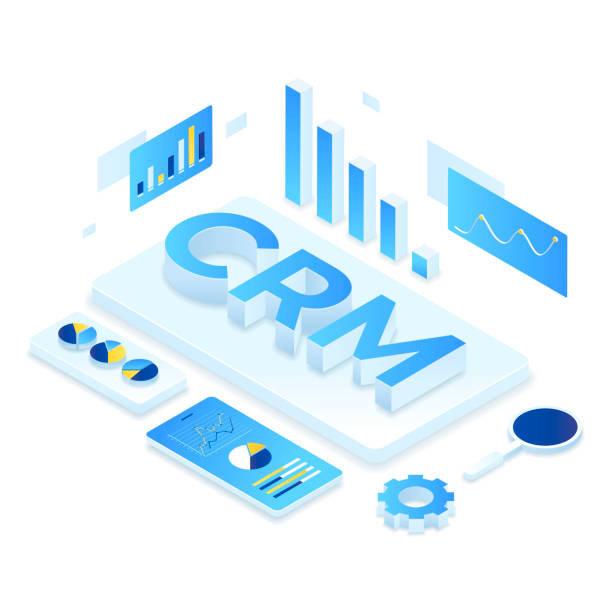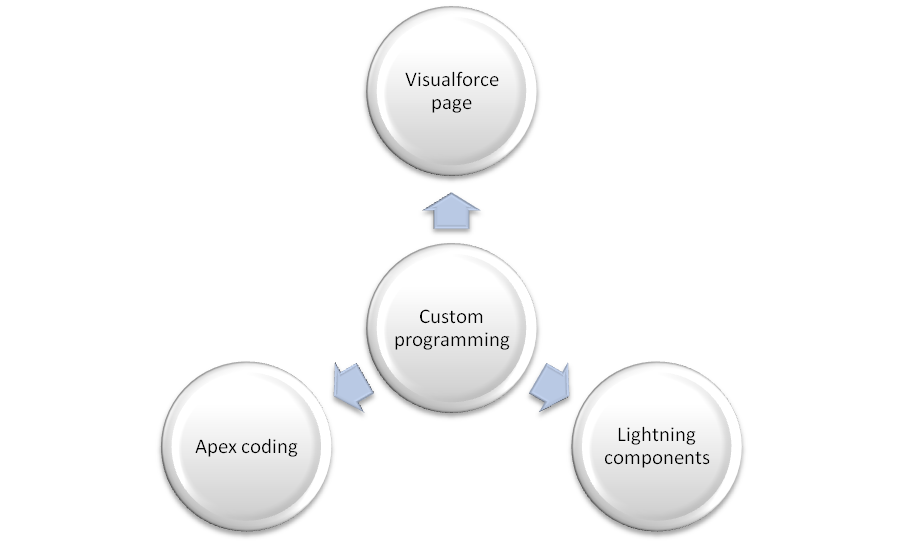Every company copes with multiple business sections, including sales, support, and marketing simultaneously. Handling all these aspects seems impossible. You can put an end to this disaster in two ways- by expanding manpower and spending additional costs or by automating every business process with a high-end CRM solution like Salesforce.

Salesforce CRM is a big name in the CRM market. Modern business is such a complex entity, so you need Salesforce CRM to manage sales, marketing, and customer service aspects automatically. It keeps employees and business owners stay away from doing repetitive and manual tasks. You can simplify, streamline, and automate any complex business process in any department of your business with Salesforce offerings.
There are two certain ways to embrace your business processes in Salesforce – custom programming and declarative customizations.
SCHEDULE MY CUSTOM CONSULTATION
Want to take your business into next level? You can achieve it by embracing Salesforce CRM with your business. Click here to get the best Salesforce consulting partner.

Custom programming

Salesforce is easily customizable according to your business needs. All the out-of-the-box features that Salesforce provides can be adjusted. For this, you must need experienced Salesforce developers or experts who can code on Apex, lightning, and Visual force. Salesforce custom programming offers some main features that are listed below.
- Apex coding can be used to drive logic in lightning components and Visualforce pages as well as for integrations with other third-party systems for data syncing purposes.
- Visualforce page gives you the power to make VF pages to design and render PDF documents, customs forms, etc.
- Lightning components set you to use whole features of lightning that provide a responsive design (mobile-first) for various UI sections. This is faster than Visualforce pages.
Declarative Customization
Many of Salesforce’s features for sales, service, marketing, and engagement are simply available right now. In other words, these declarative capabilities can be used without writing a single line of code and are typically configured by the Salesforce admins at your company or other pertinent sales, service, or marketing experts. Some of the most popular declarative characteristics are listed below:
- Validation rules let you validate your data before updating or inserting it.
- Workflow rules authorize you to perform a value or action when particular criteria are met.
- Sharing and security powers you to deny and provide access.
- Opportunity and related benefits include revenue forecasts and opportunity splits, such features contribute to the implementation of the sales cloud. You can predict future revenue by enabling revenue forecasts.
- Case and related features contribute to the implementation of a service cloud that includes case queues and case teams. A case team is a group of service reps that work on a case. Case queues enable you to assign cases.
- Campaign and related features contribute to marketing cloud implementation, which includes mass marketing emails.

Using Salesforce to convert your business processes into user stories
Salesforce essentially assists you in moving your business to the cloud. And doing so may enable you to achieve your goals in terms of sales, service, marketing, and engagement. You’ll likely wish to enable a lot of tasks or processes in Salesforce. The best method to handle this is to break down each functionality or task into a variety of manageable work units known as “user stories.” These tales may be given to your admins and developers, and you can then watch as Salesforce swiftly comes to your business. This complete method of management through discrete units of work adheres to the Agile Methodology paradigm, which is the suggested technique to build Salesforce apps.
How you can use Salesforce sales cloud
Sales Cloud allows you, as a sales manager, to observe and track the deals your sales representatives have been diligently working on. This includes being aware of each deal’s status and developments.
You can keep track of active deals and advance them through different phases as an organization. For instance, the Request, Proposal, Confirmed, Contract, and Closed Won or Closed Lost stages may be part of your sales process.
Using Salesforce Forecast Management, a business forecast manager can estimate revenue for the upcoming quarter by estimating the likelihood of a contract closing.
How you can use Salesforce service cloud
Service Cloud gives you the power to assign client ad hoc requests to the appropriate department based on the type of request being made. For instance, the hardware team would be given requests for hardware, the software team would be given requests for software, etc.
As a live agent, you may communicate with clients through chat directly on your website and handle or transfer their requests right away.
You have the authority to expedite cases that haven’t been resolved according to the customer’s SLA if you’re the service agent manager.
How you can use Salesforce marketing cloud
In your capacity as a marketing manager, you can use Marketing Cloud to introduce fresh campaigns for various products as well as include leads or contacts as campaign participants. Additionally, you may follow the behaviour of all related campaign members’ emails and send promotional emails to them all. Even better, you may create a special screen to collect participant feedback for events you host.
Wrapping up
You can start implementing Salesforce in your business processes. With Salesforce features, all your business processes will be driven on the Salesforce platform very quickly. You need the support of Salesforce consultants to automate your business processes without a hassle.
TO CLOSE MORE DEALS FASTER
Do you want to adopt your business with Salesforce? Then it is very easy with QRS. Our experts have a plenty of knowledge in all the aspects of Salesforce. Click here to know more.


